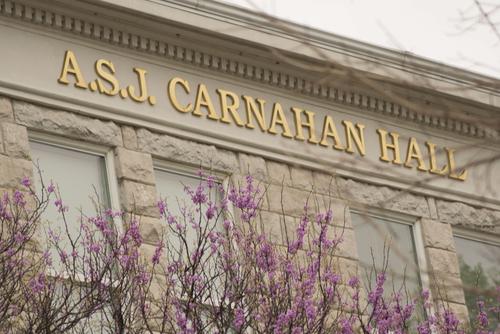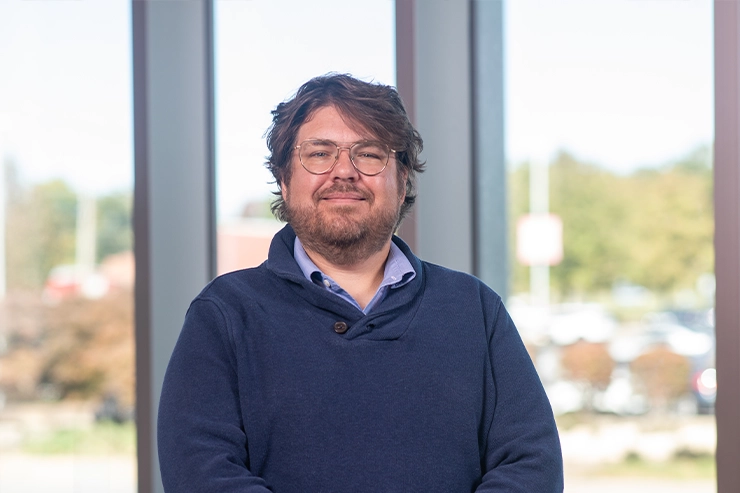Master of Arts in English
Continue to main contentMA in English Outcomes & Careers
-
$87k
English language and literary teacher, Postsecondary
According to the Bureau of Labor Statistics, the mean annual salary for a postsecondary English language and literary teacher is $87,670.
-
$85k
Editor
According to the Bureau of Labor Statistics, the mean annual salary for an Editor is $85,7000.
-
$85K
Copy Writer
According to the Bureau of Labor Statistics, the median annual salary for a Copywriter is $85,780.
Work Toward Your Goals
The MA in English program lets students choose ten courses in literary studies, creative and professional writing, rhetorical studies, literacy pedagogies, grammar, linguistics and cultural studies.Our MA in English also includes a customizable capstone project. The project could be (but is not limited to):
- a collection of fiction or poetry;
- a thesis or article of original research; or
- a portfolio of professional work and accomplishments.
With a master’s degree in English, complete a minimum of 30 credit hours.
In addition to the criteria established for general admission to graduate studies, applicants must have the following:
- An undergraduate grade point average of at least 2.5 on a 4.0 scale
- A minimum of 24 semester hours of undergraduate credit in English, linguistics, literature, rhetoric, or creative and professional writing
Degree Requirements
- All students must complete their choice of a thesis, a graduate paper plus a comprehensive exam, or a capstone project.
- No course taken as part of an undergraduate degree will fulfill any Master of Arts requirement.
- EN694 Thesis may be taken only for 3 credit hours (for those opting to write a thesis).
- At least 18 hours must be at the 600 level.
- No course fulfills more than one requirement.
(30 Hours Required)
Core Courses: Choose one course from each category
Category I: Literature, Linguistics, Rhetoric, Pedagogy
- EN606 Topics, Issues, and Trends in English (3)
- EN623 Visual Rhetoric (3)
- EN686 Sociolinguistics (3)
- LI605 Anglophone Literature/Contemporary Theory (3)
- LI542 Literature for the Young Adult (3)
- LI565 Southern Literature (3)
- LI568 Masculinities in the ninteenth Century American Novel (3)
- LI570 Modern and Contemporary Novel (3)
- LI576 American Fiction of the twenty-first Century (3)
- LI577 Studies in Early English Literature (3)
- LI578 Studies in Later British & Postcolonial Literature (3)
- LI582 Topics in Literature (3)
- LI625 Focus on the Author (3)
- LI673 Studies in English Renaissance Literature (3)
- LI674 Studies in Modern American Literature (3)
- LI676 Early Twentieth Century British Literature (3)
- TL585 Methods and Techniques for TESOL (3)
- TL620 Approaches to the Teaching of Grammar (3)
- TL625 Materials Development and Assessment Tools for TESOL (3)
- TL648 Foundations in Linguistics (3)
- TL650 Approaches to Second Language Literacy Instruction (3)
Category II: Broadend and Contemporary Perspectives in English Studies
- LI612 Native American Literature (3)
- LI617 Writing Race and Gender in the South (3)
- LI626 Gender and Sexuality in Literary Studies (3)
- LI634 African-American Literature before 1900 (3)
- LI636 African-American Literature after 1900 (3)
- LI670 Immigration in Literature and Film (3)
- TL525 ESL/EFL Learning and Teaching (3)
- TL610 Developing Intercultural Awareness and Competence (3)
Category III: Professionalization and Career Readiness
- EN600 Orientation Seminar for Teaching Assistants (3)
- EN601 Research in English Studies (3)
- EN535 Rhetorical Theory and Written Discourse (3)
- EN550 Style in Writing (3)
- EN572 Creative Nonfiction (3)
- EN624 Editing and Research in Professional Writing (3)
- EN6xx Internship (3)
- EN645 Advanced Literary Publishing (3)
- EN657 Composition Theory and Pedagogy (3)
- EN670 Advanced Creative Writing: Poetry (3)
- EN678 Advanced Creative Writing: Fiction (3)
- TL601 Research Methods in TESOL (3)
Electives (Choose 21 hours)
- EN, LI, TL 5xx-6xx
- EN694 Thesis (may be taken for 3 credit hours only for those opting to write a thesis)
Capstone (Choose one)
- Thesis with Critical Introduction, including reflection
- Comprehensive Exam including reflection question
- Portfolio with qualifying paper including reflection essay
- Teaching Portfolio including reflection essay
Accelerated Program
The accelerated master’s degree program allows certain undergraduate students to take classes in their senior year that count for both undergraduate credit and graduate credit. Our Master of Arts in English and TESOL program’s were approved for this program. We encourage you to consider this opportunity.
If you have ever considered working on a Master’s program, this may be an excellent opportunity for you to begin.
Program Requirements:
- Junior Standing with at least 75 credit hours completed
- Maximum of 12 hours (500 level) of EN, LI or TL can be transferred to the graduate program.
- Minimum grade point average of 3.0
- In the final semester of the undergraduate program the formal graduate application must be submitted
Program Notes:
- Tuition will be charged at the undergraduate rate.
- Course will be initially recorded as undergraduate class at the end of semester.
- After grades are submitted at the end of the semester, the courses will be added to your graduate course list for graduate credit.
Graduate Coordinator
Dr. James Brubaker (jbrubaker@semo.edu)
Graduate Assistantships
The graduate assistantship (GA) is designed to provide support during full-time graduate study. It’s an opportunity for the graduate students to serve in a professional role while establishing a professional relationship with faculty and administrators. In addition to a per year stipend, GAs gain valuable experience. There are two kinds of assistantships: teaching and administrative.
What will it cost?
Become a Redhawk.
Do more than dream about the future. Take the first steps to make it all happen.
College of Humanities and Social Sciences
This degree is housed within the College of Humanities and Social Sciences. The College prepares students for lifelong careers. We boast programs that train students in problem-solving, critical thinking, communication, organization, and adaptability. Skills employers value, so we prepare you for basically any career field.
Graduate Coordinators
Graduate coordinators serve as the contact for graduate programs. The coordinators are most often faculty within the college that houses the program, helping you to get questions answered and first-hand knowledge of the degree requirements and placement opportunities.
Getting the Job
Your education is just one piece to launching an extraordinary career. Once you’ve mastered the material, you still have to find the job you want, make the right connections, and sell your knowledge and experience—if all this is giving you anxiety, don’t panic. SEMO’s Career Services office is here to help you with the next step. Our boldly supportive faculty will provide the expertise and support you need, so you’re landing your dream job in no time.
Alumni Accomplishments
What have alumni of the MA in English program done?
- Published novels, fiction, or poetry;
- Worked as content strategists, copy writers, or copy editors;
- Worked as grant writers, technical writers or editors, and office managers;
- Taught English abroad, in high schools, or at colleges; or
- Earned PhDs and law degrees from prestigious programs.
One University Plaza, MS 2650
Cape Girardeau, MO 63701


